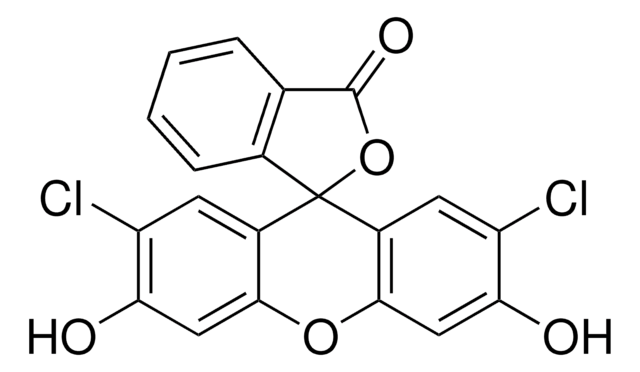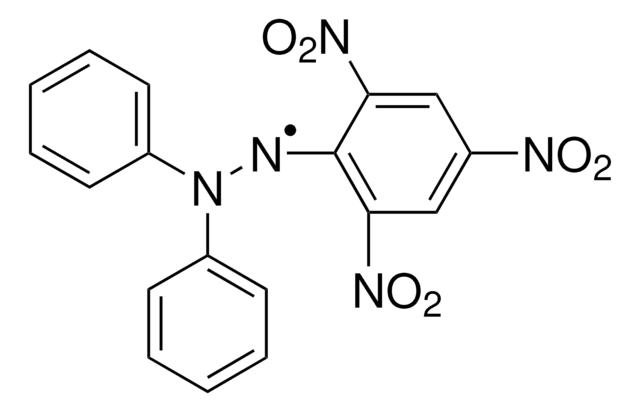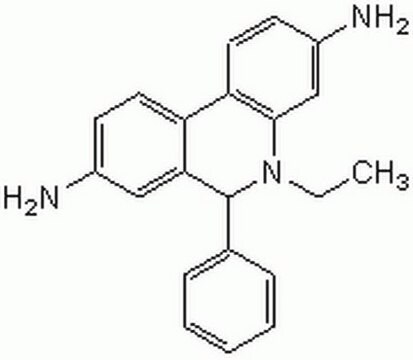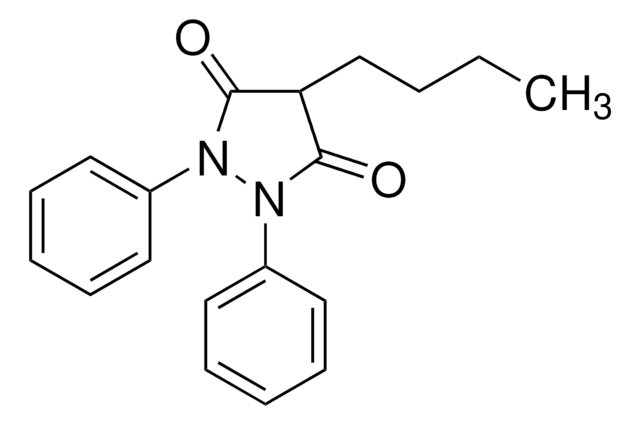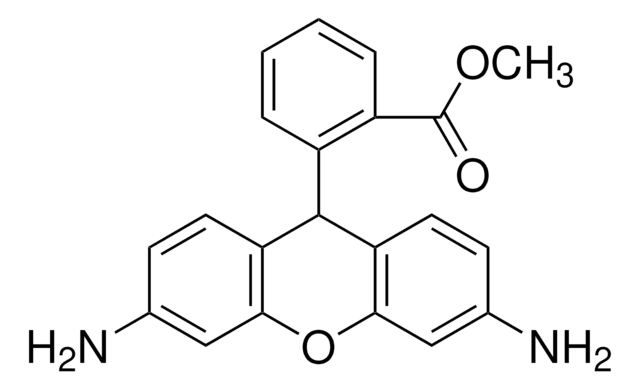35848
2′,7′-Dichlorofluorescein
BioReagent, suitable for fluorescence, ≥90% (T)
Sinónimos:
DCF, Dichlorofluorescein
About This Item
Productos recomendados
Línea del producto
BioReagent
Nivel de calidad
Análisis
≥90% (T)
formulario
solid
mp
280 °C (dec.) (lit.)
fluorescencia
λex 504 nm; λem 529 nm in 0.1 M Tris pH 8.0
idoneidad
suitable for fluorescence
cadena SMILES
Oc1cc2Oc3cc(O)c(Cl)cc3C4(OC(=O)c5ccccc45)c2cc1Cl
InChI
1S/C20H10Cl2O5/c21-13-5-11-17(7-15(13)23)26-18-8-16(24)14(22)6-12(18)20(11)10-4-2-1-3-9(10)19(25)27-20/h1-8,23-24H
Clave InChI
VFNKZQNIXUFLBC-UHFFFAOYSA-N
¿Está buscando productos similares? Visita Guía de comparación de productos
Descripción general
Aplicación
Código de clase de almacenamiento
11 - Combustible Solids
Clase de riesgo para el agua (WGK)
WGK 3
Punto de inflamabilidad (°F)
Not applicable
Punto de inflamabilidad (°C)
Not applicable
Equipo de protección personal
dust mask type N95 (US), Eyeshields, Gloves
Certificados de análisis (COA)
Busque Certificados de análisis (COA) introduciendo el número de lote del producto. Los números de lote se encuentran en la etiqueta del producto después de las palabras «Lot» o «Batch»
¿Ya tiene este producto?
Encuentre la documentación para los productos que ha comprado recientemente en la Biblioteca de documentos.
Los clientes también vieron
Nuestro equipo de científicos tiene experiencia en todas las áreas de investigación: Ciencias de la vida, Ciencia de los materiales, Síntesis química, Cromatografía, Analítica y muchas otras.
Póngase en contacto con el Servicio técnico
